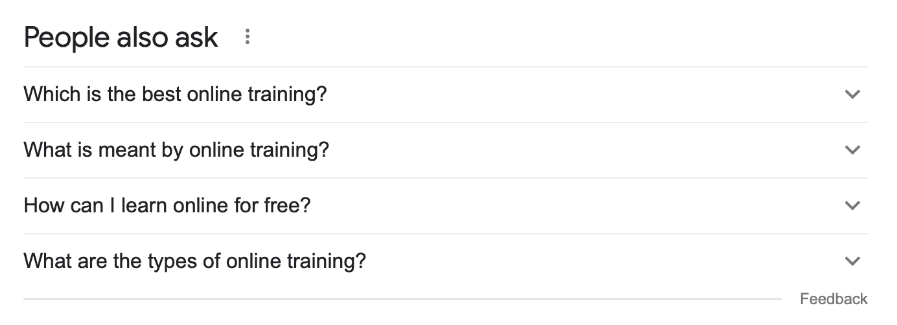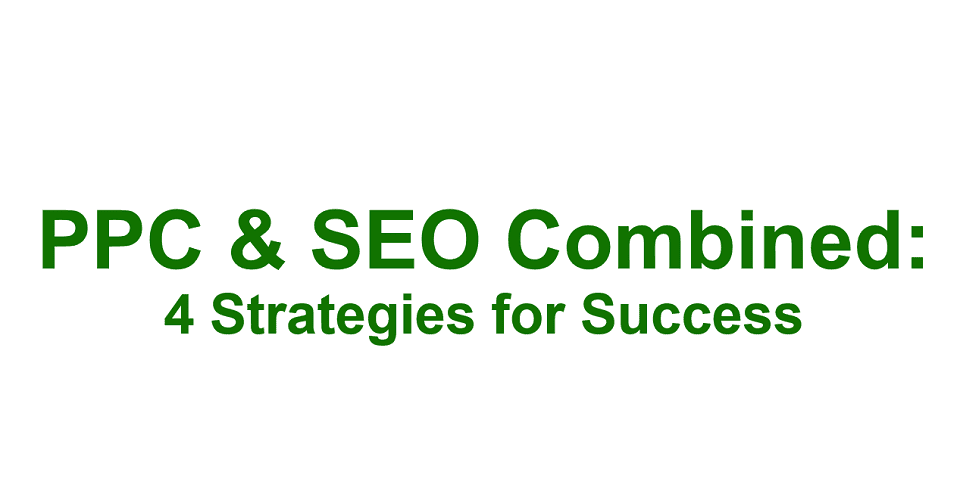For many marketing specialists, PPC (Pay-per-Click) and SEO (Search Engine Optimization) marketing strategies have been separate approaches. Some even consider them alternatives to one another, investing in them one at a time.
And who can blame them?
At the first glance, PPC and SEO help in different ways.
SEO increases a website’s organic traffic through improved visibility and authority. PPC, on the other hand, helps website owners generate traffic through targeted advertisements on search engines, social media, and other online media.
While each strategy is different, they both look to achieve similar goals. That said, SEO and PPC rely on one another, each feeding the other with essential information for helping improve their joint outreach.
So if your SEO and PPC doctrines exist in separate silos, you’re doing it wrong. It’s time to break those silos and mature your marketing efforts.
Differences Between SEO and PPC
SEO is a process that aims to improve the quality and quantity of traffic that a domain receives from search engines.
SEO specialists use advanced but proven techniques, such as content creation, technical optimization, link building, and related activities.
PPC is a model of digital advertising that operates as a real time auction, in which you bid how much you are willing to pay every time a visitor clicks on one of your ads.
Both these tactics are subsets of search engine marketing (SEM). However, there are several key differences between them, including:
- Paid ads can appear at the top of search engine listings – above organically ranked content and pages.
- Advertisers who generate traffic from their ads need to pay for every single visit. That isn’t the case with true organic listings where you get clicks based on visibility as a result of good SEO practices. According to data from BrightEdge, more than 53% of website traffic comes from organic search.
- You can expect to see instant results from PPC campaigns. However, when you run out of budget, you’ll see your overall traffic drop back down to pre-campaign levels. SEO strategies, on the other hand, take much longer to gain momentum. You may have to wait for months or even years to see positive ROI. However, once your SEO campaign begins producing results, the results will last for a long time and keep generating leads.
Similarities Between SEO and PPC
PPC and SEO are different in multiple ways. At the same time, they also share some similarities.
- Both tactics drive traffic to your website. Marketers use both channels to generate conversions. PPC delivers these conversions via paid clicks, while SEO achieves it by climbing up the SERPs organically. Whichever the means, the end goal is the same.
- PPC and SEO are both keyword-driven processes. Advertisers conduct keyword research to identify prosperous phrases to include in ad texts, while SEOs analyze relevant terms to learn how to optimize titles, content, and other on-page elements as well as their off-page / link profile anchor texts.
Now that we have laid out the differences and similarities, let’s see how you can benefit from employing these two strategies together.
This is one of the best practices to make SEO and PPC part of the same effort. Although certain types of keywords have surface differences, it’s important to understand the intent behind search terms.
This way you avoid falling into keyword traps.
Experienced SEO specialists are experts in understanding search intent.
For example, the cryptocurrency exchange Eterbase is bidding on “phone apps for crypto trading.” But they don’t sell phone apps. They’re broad match bidding on terms containing “crypto trading.”
In a way, Google has become a modern-day casino for ad people. The marketing team at Eterbase is gambling on the possibility that people looking for phone apps might also be interested in cryptocurrency trading.
The key is in studying the search results closely. Google often signals its own interpretation of a search term based on the types of results.
For example, if you search Google for “digital proposal”, the search engine results page (SERP) signals that you’re looking for a definition.
Of course, this is only in theory, because in reality, the first page of the SERP is thickly populated by the most ambitious digital proposal companies who have mastered SEO.
What you see instead is a list of definition style SEO pages. In this case, you’ll find it easy to understand that a product page wouldn’t rank for this keyword.
Let’s consider another keyword trap. If you google “online training,” you’ll likely see two very different results in the ads:
- Virtual classroom apps
- Best-selling online courses
There’s no way to tell if a user is looking for virtual training software or online courses. However, if you scroll down to the organic results, you see mostly online course companies such as Udemy, Coursera, and even LinkedIn.

The ‘People Also Ask’ box is also indicating the search intent, because most of the questions are related to online courses.
Bottom Line
SEO specialists need to evaluate SERP signals to make sure the content they publish goes hand-in-hand with Google’s organic search results.
This is especially important when there are keyword traps lying around – words and phrases that sound good but have dual meanings.
When SEO catches those dualities, they need to share this intelligence with the PPC team as soon as possible to avoid wasting ad spend on bad SERPs.
Each time your SEO team decides to promote a new keyword, it can be months before they see measurable results. If the keyword phrase was spot on, that’s great.
However, when the click-through rate (CTR) and engagement are both low, you’ll be wasting your time and money running an SEO hamster wheel.
Keep in mind that CTR is an indirect SEO ranking factor.
SEM works in exactly the opposite way. You can tell if your PPC or copy is working or not in a matter of days, without having splurged your funds on long-haul campaigns.
In this sense, PPC is best for getting fast, short-term results. Then you can use these insights to fuel your broader SEO strategy.
You need to test as many ad copy variants as you can, such as:
- Headlines, title tags, descriptions
- Keywords
- Landing page variations
- New product releases
Test and test more. Keep testing until you have ample volumes of data to support your SEO efforts.
Bottom Line
Through PPC campaign results, you can reveal each headline’s impact on clicks, time on page, bounce rate, and other engagement metrics.
Then, use those insights to choose the best topics. And then write and optimize your page titles and meta descriptions in the best way you can to address your target audience’s needs and interests.
3. Optimize Landing Pages for Both SEO and PPC
I’ve seen this one played out many times. A business spends money on paid ads without testing its landing page sufficiently. So that business gets miserable results.
You should absolutely prioritize landing page optimization. This step is critical to help you avoid burning through precious marketing budgets, only to dump visitors into a mediocre content experience.
This means that SEO and PPC teams must align their efforts with respect to landing pages:
- You need a non-indexed landing page that is focused on conversions for PPC advertising. Your main conversion goals are going to be things like form completion, demo requests, live chat, questions, etc.
- Your SEO and CRO (Conversion Rate Optimization) teams need to work together to build new landing page variants with intelligent hypotheses. Split test these pages and analyze the results.
- Work with the SEO team to create a separate asset, such as a guide or review, which is a long-form and educational piece of content on that same topic.
Let’s consider this scenario: a shopper searches for your brand or product name, they click on your PPC ad, stick around for a bit, and exit the page without converting.
A few days later, they search for guides to help them choose a product. This search leads them to an educational piece of content you produced on that same topic.
As they click around, browse and scroll through the search engine results, they already have your brand name on their radar.
They have gotten used to your tone, visuals, and messaging. If they had a positive experience with your PPC ads and website content, they’ll look for your name in a clutter of organic listings.
When they see a brand name all over the place, they naturally assume that the company behind it is big, important, and probably worthy of trust.
According to HubSpot, businesses that use optimization tools for their landing pages see an average conversion boost of 30%. Imagine the revenue you can drive with such a boost in volume!
4. Discover Hidden Keywords Along the Buyer’s Journey
In a marketing paradise, every keyword, blog post, landing page, and paid search ad would convert visitors into leads.
But we don’t live in a perfect world, so don’t try to sell so hard. Don’t try to create content purely for lead generation.
Instead, focus part of your content on educating a niche audience.
And we get back to user intent.
Your keyword research needs to discover the searcher’s ultimate goal and determine at which stage each customer journey starts:
- Unaware: The customer has never actually considered they have a problem in the first place.
- Problem aware: The customer is aware that they have a problem, but for some reason, he or she hasn’t done anything about it yet.
- Solution aware: The customer is actively searching for a solution online.
- Product aware: The customer has found several solutions including your own but is not yet convinced you are the right match.
- Most aware: The customer has chosen your product and is ready to buy. You need to show them the next steps.
Based on these stages, sort your keywords for SEO and PPC campaigns into:
- Educational: guides, tutorials, ebooks, FAQs
- Solution: x best, top x, reviews, comparisons
- Transactional: demo, free trial, buy, investment
For maximum leads, your advertising managers should avoid bidding on educational keywords, focusing instead on solution and transactional keyword types.
Wrapping Up
When you match the best-performing PPC keywords to your SEO goals, you can focus your organic SEO efforts on keywords that will boost your organic search traffic.
It’s time to end the PPC vs SEO rivalry. Tear down those silos and unlock new opportunities through a holistic marketing strategy that gets you covered both short- and long-term. This rings true for national or local PPC and SEO efforts.
Nikola Gemes
Latest posts by Nikola Gemes (see all)
- PPC & SEO Combined: 4 Strategies for Success - September 27, 2022





